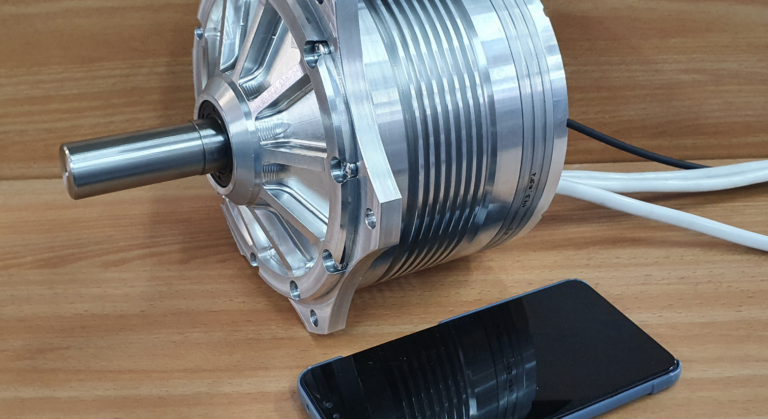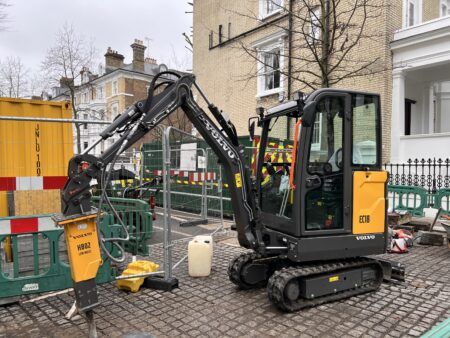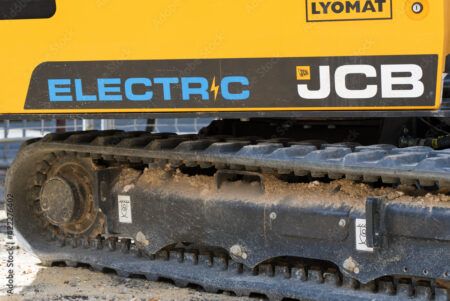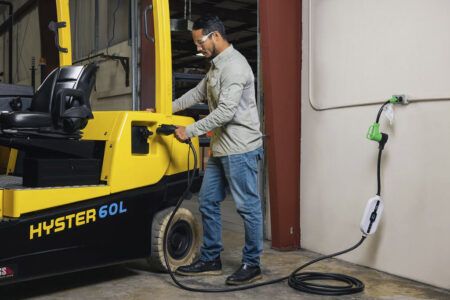Israeli startup EVR Motors is unveiling an innovative electric motor, based on a new patented topology, which it calls TSRF (Trapezoidal Stator Radial Flux). The company has successfully developed and tested the first prototypes of its lightweight and compact TSRF motor.
EVR expects its new motor architecture will be adapted to a wide range of vehicles in cooperation with automotive OEMs and Tier 1s. A production-ready motor is scheduled to be introduced to the global market later this year.
According to EVR’s tests, the novel motor is less than half the size and tens of percent lighter than existing state of the art RFPM (Radial Flux Permanent Magnet) motors with similar power.
EVR is currently holding discussions with a variety of OEMs, Tier 1s and users in several countries, on conducting demonstrations and developing motors suited to their specific requirements. The company will hold an online demonstration of its novel motor on May 19, as part of the Ecomotion Week 2021 virtual event.
The transformation of the industry has put huge pressure on automakers to match the internal combustion engine’s performance and cost with small, lightweight and price competitive motors. “We managed to change the basic design of the electric motor, which has remained much the same for the last several decades, while maintaining the traditional advantages of the radial flux motors,” said Opher Doron, CEO of EVR Motors. “Our small, lightweight motors will provide vehicle manufacturers with improved performance while increasing installation flexibility and reducing costs.”
EVR notes that its patented TSRF motor topology will enable superior power and torque density, as well as reduced production costs. EVR Motors can tailor its TSRF solution to most mobility and industrial applications, from two wheelers to cars and trucks and from Battery Electric Vehicles (BEVs) to Hybrid Electric Vehicles (HEVs). TSRF technology can support a wide range of power and torque outputs, with voltage ranging from 48V to 800V, that are suitable for different power levels and for a wide range of speeds.
EVR’s neodymium-based motors perform significantly better than conventional RFPM motors at a significantly lower cost. The company notes that the new motor, when offered in low cost, rear-earth free, Ferrite-based versions, outperforms induction motors of a similar price range.
EVR has recently conducted tests on a prototype traction motor designed for two- and three-wheel electric vehicles. The air-cooled motor delivered a best-in-class peak power of 17kW, and 40 Nm of torque, from a 2-liter volume, weighing only 9 Kg, far exceeding other small, air cooled radial flux motors. Additional versions of the motor will be tested in the coming months, including versions with different voltages, liquid cooled versions, and Ferrite magnet-based versions. Larger motors suitable for mainstream passenger and commercial vehicles are under development.
Up till now, EVR Motors has raised seed funding of $5.5 million from several investors, led by Marius Nacht, one of Israel’s leading serial entrepreneurs, tech founders and investors. Teramips Technologies, which funds innovative technical ideas, is another key investor, and additional funding has been received from SIBF (South Israel Bridge Fund VC) and through grants from the Israel Innovation Authority.
The company is led by CEO Opher Doron, who in the past held senior positions at Israel Aerospace Industries (IAI), Israel’s largest aerospace firm. In his former role as General Manager of IAI’s Space Division, Doron was responsible for the development, construction, launch, and operation of observation and communication satellites for Israeli and foreign users and led the IAI team in designing and constructing SpaceIL’s Beresheet lunar lander.
EVR was founded by its current president and COO Eli Rozinsky, together with Victor Kislev and Ruslan Shabinski. The company’s chairman is Ophir Shoham, former Director of Defense R&D Directorate at the Israeli Ministry of Defense (MAFAT) who manages Marius Nacht’s investments in high-tech. EVR’s workforce has grown to 20, including three PhDs, skilled engineers, a motor assembly team, and a test group.





